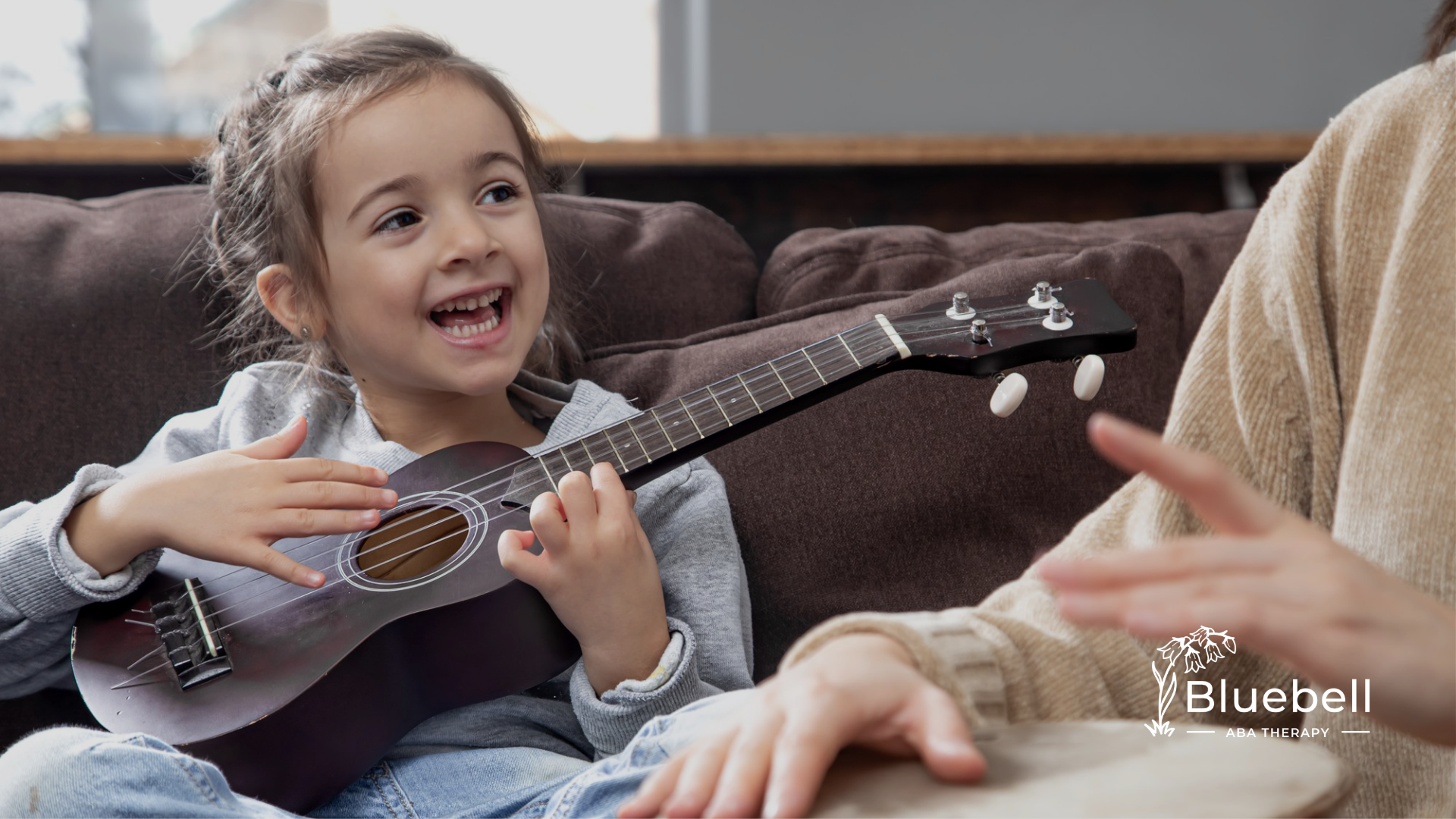Music can be a powerful tool for supporting autistic children. It engages multiple areas of the brain, promoting communication, social interaction, and emotional regulation. Through rhythm, melody, and repetition, music helps children recognize patterns, improve memory, and develop speech and language skills.
Many autistic children respond well to music because it offers structure while allowing creative expression. Singing, clapping, or playing instruments can encourage turn-taking, joint attention, and cooperative play—skills that are often challenging for children on the spectrum. Music also provides a safe way to express emotions, reduce anxiety, and enhance sensory integration.
Therapists often incorporate music into ABA therapy (Applied Behavior Analysis) to motivate participation and reinforce positive behaviors. Even simple activities like listening to songs, dancing, or playing instruments at home can have measurable benefits.
At Bluebell ABA, we use music-based strategies alongside ABA therapy to support communication, social skills, and emotional development in autistic children.
Frequently Asked Questions
1. Can music improve speech in autistic children?
Yes, music and singing can strengthen language skills and articulation.
2. What types of music work best?
Simple, repetitive songs with clear rhythms often yield the best results.
3. How often should music activities be done?
Daily short sessions—10–20 minutes—can be most effective.
Sources:
- https://pmc.ncbi.nlm.nih.gov/articles/PMC9441466/
- https://www.uhc.com/news-articles/community/music-therapy-kentucky


